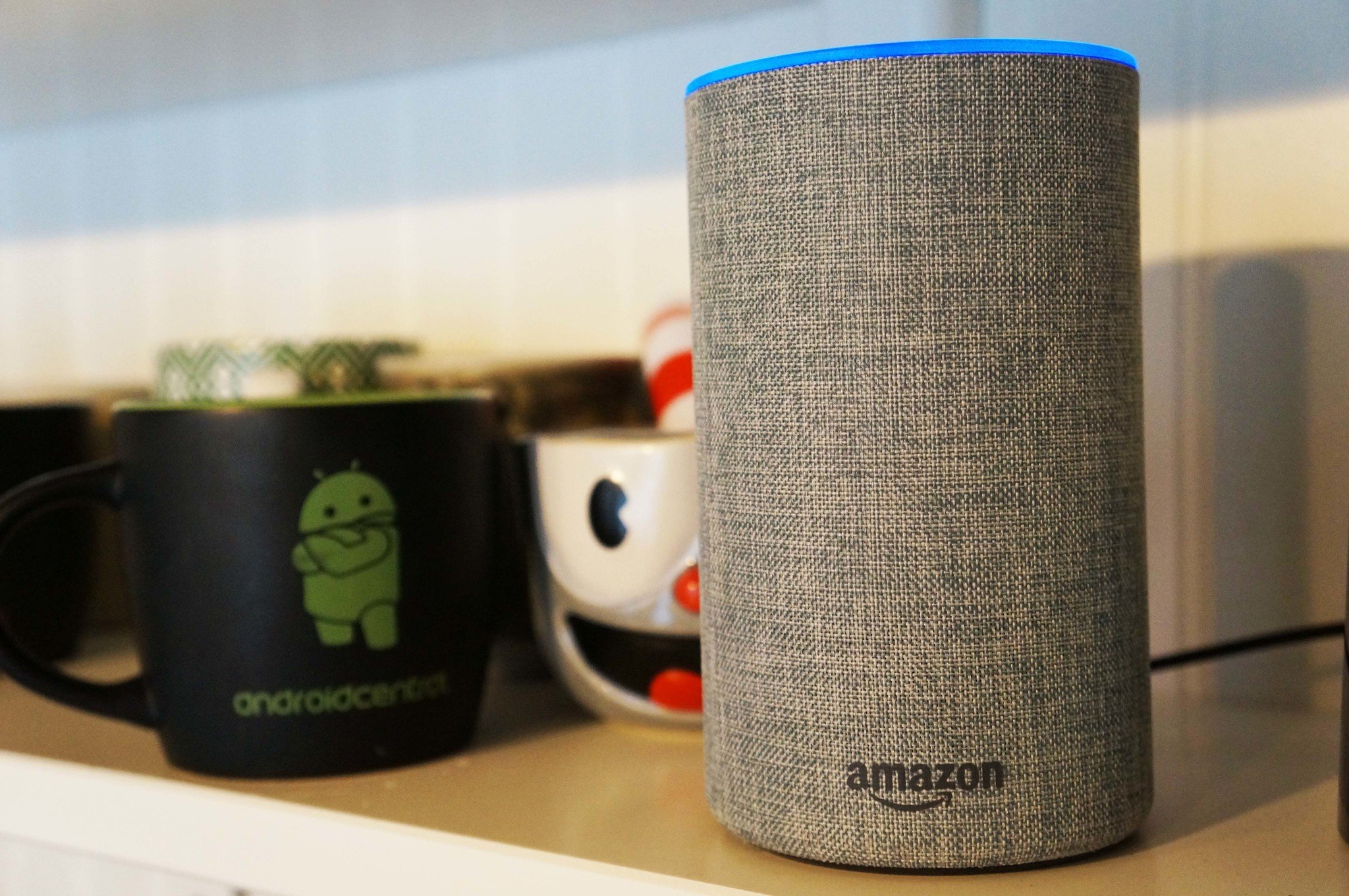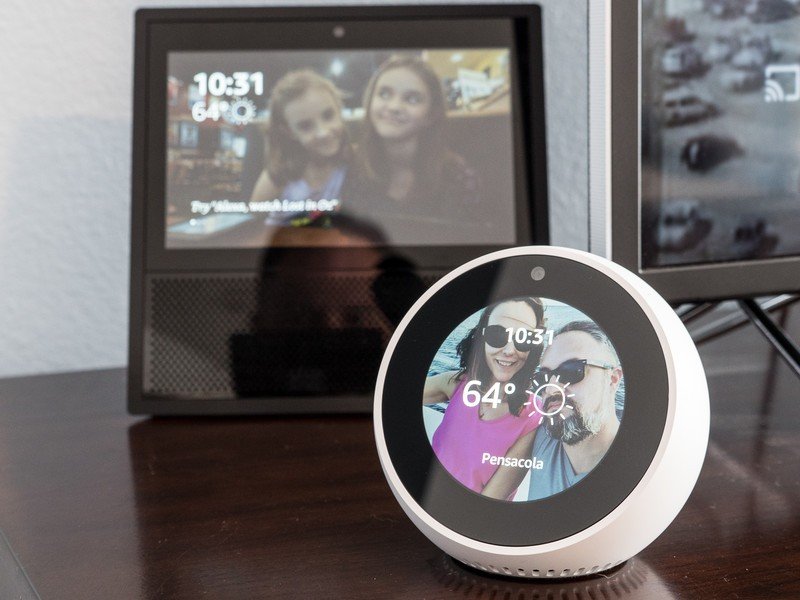Amazon Alexa: What kind of data does Amazon get from me?

Amazon's Alexa virtual assistant is a pretty great thing. You can ask about the mundane details of life to know when your next dentist appointment is (provided you linked a calendar in the app) or have Alexa remind you to do things at a certain time or even build out a detailed to-do list if you're busy enough to need one. She (Alexa is a" she" like Siri or Cortana and not an "it" like Google Assistant) also is tightly integrated with Amazon services, so you can play Amazon Music or watch Amazon Videos and even control your Fire TV, as well as shop for almost anything your heart desires on Amazon just by asking her to find it for you.
Alexa only knows the things you tell her, but she also never forgets them.
Where Alexa really shines is when it comes to controlling the smart products in your home, and just about any connected gadget you can buy will have Alexa support, even gadgets from other companies like Google's Nest.
Of course, to be this smart and do these sorts of things means Alexa has to know a lot about you. You can't expect any service to know your schedule if you haven't shared it, and with products like the Echo Show that were clearly designed for communication with other people, details about your friends and family need to be shared, too. This brings up a very important set of questions: what sort of information does Amazon get from me when I use Alexa, what does it do with it, and can I take it back if I change my mind?
What you share
For many, this is the most important thing to know about a service like Alexa. Privacy matters and it gets slowly eroded every day, even if you aren't using a smart assistant that knows everything about you. And when any device is always listening, it's worthy of special attention.
Alexa does listen to every word it can hear, but most of it is never stored or sent off to the cloud. Products like Alexa work by use of a "hot word" and an Echo or Fire TV has to listen for that word to operate. If it hears the hot word, it will shift gears and be ready to process what comes next. From Amazon's Alexa Device FAQ page:
Amazon Echo and Echo Dot use on-device keyword spotting to detect the wake word. When these devices detect the wake word, they stream audio to the Cloud, including a fraction of a second of audio before the wake word.
Of course, everything electronic can be exploited and some older models of Amazon's Echo were vulnerable to a hack that had it record everything it could hear, but it required modifying the Echo itself and some soldering. For the most part, these things are safe because they stay locked up inside your home.
Use the tools Amazon gives you and check in on the things saved in your account and do a little spring cleaning from time to time.
Once Alexa is initialized because the hot word was detected, what she can hear is then streamed to the cloud for Amazon to process. That's where things get a little worrisome for people who are privacy-conscious, but the reality is pretty benign.
Be an expert in 5 minutes
Get the latest news from Android Central, your trusted companion in the world of Android
You're able to review everything Alexa has recorded through the app on your phone, and Amazon has made it easy to delete any queries through the app's history feature as well as remove any Amazon device from your account (thus deleting all of its associated data) through the My Devices page on the web.
Seeing what Amazon collects is simple, and removing your data is, too. That's great, but what does Amazon do with our data while they have it?
How Amazon uses your data

Amazon isn't in the business of selling your data away to another company. Like Google, they are more concerned with using it to build out a marketing profile of you. Say, for example, you're a single male between 25 and 40 who makes $50,000 to $75,000 per year. You would then see ads for Amazon products that they have determined are things that people like you are likely to buy. They gather this data by monitoring how you use their products.
Amazon's goal with data collection is to build a "360-degree view" of you and your buying habits.
Where Facebook knows about the people you know and places you go, and Google knows about the things you use the internet to do, Amazon knows everything there is to know about what you buy online. Amazon.com is easily the biggest online shopping site and according to CNBC, 75% of people in the U.S. who shop online use Amazon to do it the majority of the time. Every one of those purchases is tied to the account that initiated it, and connecting that account to an Alexa-powered device simply rounds out the "360-degree view" of you that Amazon wants to create.
Amazon also uses information about your contacts and who you are calling through Alexa. From the Alexa Terms of Use:
Amazon processes and retains your Alexa Interactions and related information in the cloud in order to respond to your requests (e.g., "Send a message to Mom"), to provide additional functionality (e.g., speech to text transcription and vice versa), and to improve our services. We also store your messages in the cloud so that they're available on your Alexa App and select Alexa Enabled Products.
Besides using your data to do the things you ask Alexa to do, Amazon also uses it to "improve their services" which includes any customer profile they may be creating about you. Big data is an amazing monster and machine algorithms that can use something innocuous like knowing you call your mother on Sundays to target products to you is a real thing.
Amazon also promotes advertisements using this data. Amazon sellers can pay to have their products promoted and Amazon sweetens that deal by promoting products to users who are more likely to buy them. We think of Google when talking about online advertising, but Amazon does the same thing and does it very well. They just limit it to their own market, mostly.
Does Amazon sell any of my data?

No, because if they did they would lose a lot of money. Your data is kept in-house and secured and encrypted, and during transmission is secured and encrypted through SSL. Amazon does not detail how much of your data is stored anonymously, and it's safe to assume that the bulk of your customer data is easily traceable back to you. That means keeping it secure is very important and Amazon uses their own security specialist teams to keep the machine running and in check.
Like most online services, there are times when Amazon shares your data with partners. Here is what Amazon has to say about how they handle this from their general Privacy Policy:
This does not include selling, renting, sharing, or otherwise disclosing personally identifiable information from customers.
Examples of when Amazon shares your data are things like sharing with credit card processors, their own subsidiaries, package and parcel delivery services or wire transfers. Amazon does offer third-party promotions (ads for companies or websites that are not under the Amazon umbrella) but they build and send these themselves on behalf of the third-party and don't give another company your information. Seeing anonymized data shared with strategic partners is commonplace and no cause for alarm.
The shopping profile Amazon has built of you makes your data more valuable to Amazon than any dollar amount. Using the profile of your account for targeted advertisement is a never-ending well of revenue, and selling it away to another company would only serve to lessen its value. Amazon is worth billions, and a big part of what got the company there is how they target products to potential buyers. They aren't about to give any of it away or sell it for a relatively small fee.
Have you listened to this week's Android Central Podcast?

Every week, the Android Central Podcast brings you the latest tech news, analysis and hot takes, with familiar co-hosts and special guests.

Jerry is an amateur woodworker and struggling shade tree mechanic. There's nothing he can't take apart, but many things he can't reassemble. You'll find him writing and speaking his loud opinion on Android Central and occasionally on Threads.
